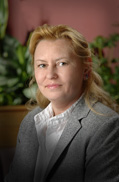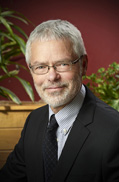ARCHIVED: NOT AVAILABLE FOR CREDIT
New Guidelines for HIV Diagnosis
Two fourth-generation HIV antigen/antibody combination assays are now available in the United States. These assays detect both anti-HIV antibodies and p24 antigen, and reduce the serologic window by detecting HIV infection on average five to seven days earlier than third-generation Ab-only immunoassays. This advance in technology will improve the diagnosis of acute HIV infection and has significant implications for follow-up confirmatory approaches.
Therefore, the CDC has proposed a new HIV diagnostic algorithm recommending fourth-generation assays as the initial screening test and eliminating the Western blot for confirmation. This revised algorithm emphasizes the importance of improved detection of acute HIV infection, accurate discrimination between HIV-1 and HIV-2 infection, and nucleic acid tests (NAT) for confirmation of acute HIV infection.
Because there are substantial changes to the algorithm that has been in place for more than 20 years, laboratorians should become familiar with the new algorithm, advances in screening assay technology, and the limitations of available assays recommended for confirmation. Knowing what assays the laboratory is currently performing for HIV diagnosis is crucial for appropriate result interpretation and patient follow-up.
Originally presented on September 21, 2012, in Salt Lake City, Utah.
Lecture Presenters
 | Patricia R. Slev, PhD Medical Director, Serological Hepatitis/Retrovirus Laboratory |
Dr. Slev is the medical director of the Serological Hepatitis/Retrovirus Laboratory at ARUP and an assistant professor of pathology at the University of Utah School of Medicine. Dr. Slev earned her PhD in immunology and laboratory medicine from the University of Florida, Gainesville and completed a fellowship in clinical chemistry at the University of Utah. She is board certified by the American Board of Clinical Chemistry. Dr. Slev's research interests are in immunogenetics and pathogen interactions, particularly HIV and viral hepatitis.
 | David R. Hillyard, MD Medical Director, Molecular Infectious Diseases |
Dr. Hillyard is the medical director of Research and Development for the Infectious Diseases Laboratories at ARUP as well the medical director of the following laboratories: Core Nucleic Acid Sequencing, Core Molecular Infectious Diseases, Infectious Diseases Sequencing, and Molecular Hepatitis/Retrovirus. He is also a professor of pathology, with an adjunct appointment in biology, at the University of Utah School of Medicine. Dr. Hillyard received his MD from the Columbia University College of Physicians and Surgeons. His training was in anatomic and clinical pathology, with fellowships in medical microbiology and microbial genetics.
Objectives
After this presentation, participants will be able to:
- Explain the advances in HIV diagnostics, including fourth generation Ag/Ab combination HIV screening assays.
- Describe the new CDC HIV diagnostic algorithm.
- Understand the evidence in support of the new diagnostic algorithm.
- Use screening and follow-up confirmatory tests appropriately.
Sponsored by:
University of Utah School of Medicine, and ARUP Laboratories
 Site Search
Site Search

